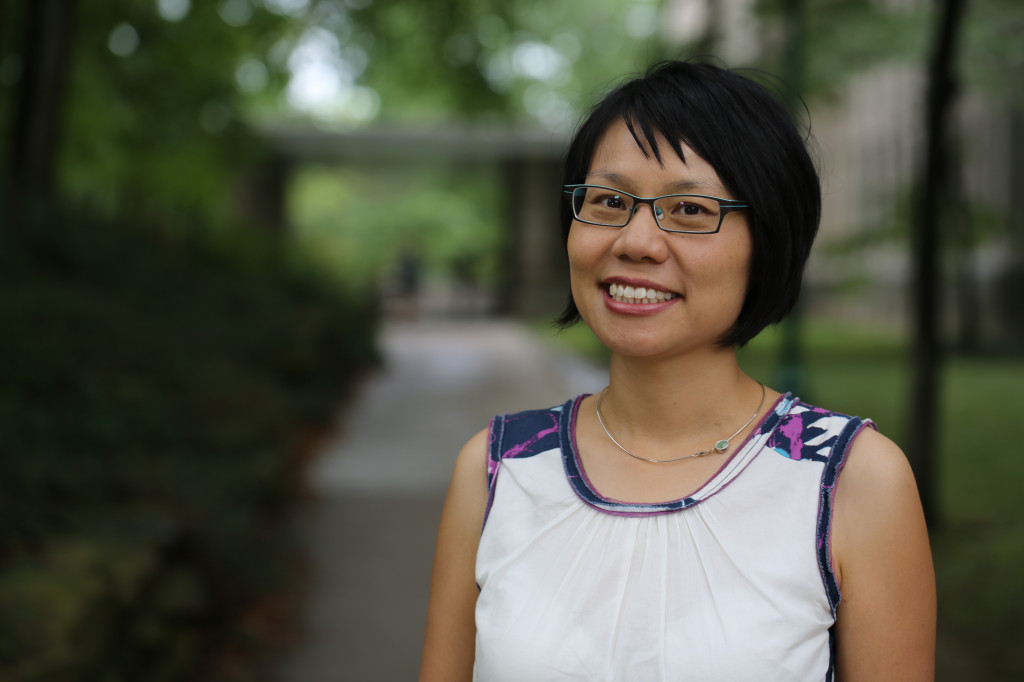Ellen Wu is an Asian American historian, writer, and teacher with special emphases on immigration, race and Asian America.
How do you see yourself as a historian?
I am an Asian American history detective! I also call myself a “Hoosierchino”—an Indiana-born, raised, educated, and now employed second-generation Chinese American. I’m also a mother, wife, sister, friend, seeker of tasty morsels, and aspiring home cook/baker. I make a fierce hot and sour soup and green onion pancakes from scratch. I like to experiment with buttercream, mochi, and black sesame seeds.
My job as an Asian American history detective lets me combine some of greatest passions. I was originally drawn to Asian American Studies as a way to understand my own place in the world. But I soon learned that it is much than that. The founders of Asian American Studies emphasized the importance of education relevant to APA communities. They also believed that it was possible not only to fight oppression, but to banish it altogether.
The original, radical vision of Asian American Studies continually inspires me. I strive to tell new stories in such a way that is meaningful and accessible to Asian Americans from all walks of life. I am interested in ordinary people who collectively did extraordinary things. But I am also just as intrigued by actions that had consequences (whether intended or not) that make us uncomfortable or even ashamed today. I believe that historians have the responsibility to acknowledge the full range of human activity and its outcomes—positive, negative, and all points in between.
How has being an Asian American affected your life as a historian, or vice versa?
Being an Asian American has everything to do with my life as an Asian American history detective. I draw inspiration from my own everyday experiences as well as those of my Asian American family members, friends, colleagues, and community members (IRL and virtual). The kinds of issues that we grapple with today (what WEB Du Bois called “Double Consciousness,” or what he called ““the sense of looking at one’s self through the eyes of others”; the lived implications of the model minority stereotype; the intersections between racism, sexism, classism, homophobia, ableism, colonialism, etc.) have deep roots in the past. These challenges have pushed me to think about how our world came to be as it is today—what has changed and what was remained constant. While I don’t believe that society always get better or progresses over time, I realize that that Asian Americans enjoy levels of acceptance and opportunity that were completely unthinkable in the 19th and early 20th centuries. These improvements were only possible through the labors of our many predecessors (Asian Americans, African Americans, and others). So studying history is a way for me to honor the contributions and bravery of those who came before us, and a way to think about how we can and should strive to shape human existence to be kinder and more just for all people.
I want to add that Asian American history isn’t just for Asian Americans. It’s for everyone! For me, one of the most exciting attributes of Asian American history is that it is a useful, even ideal lens to examine anew the meanings, processes, and implications of identity and belonging. Because Asian American history is also immigration history, labor history, foreign relations history, the history of sexuality, world history, etc., reinterpreting our nation’s past with Asian Americans at the center opens up novel perspectives on US society, culture, and politics. Questions about the blurry lines between the “foreign” and the “domestic” fuel my work as a researcher and teacher. Asian American history, then, is a way to critique existing power arrangements and imagine alternative futures.
Contact Info/Shameless Plugs?
- My new book, The Color of Success: Asian Americans and the Origins of the Model Minority, is the very first in-depth look at the invention of the “model minority” stereotype between World War II and Asian American Movement (late 1960s-early 1970s)
- “The Forgotten Story of the Japanese American Zoot Suiters” (Yes! There were Japanese American zoot suiters in the 1940s!)
- “Asian Americans and the ‘model minority’ myth”
- Twitter: @ellendwu
________________
Tune in every day this month for Reappropriate’s daily “Faces of Asian America: Being X” series, which will profile an awesome Asian American in celebration of AAPI Heritage Month.

